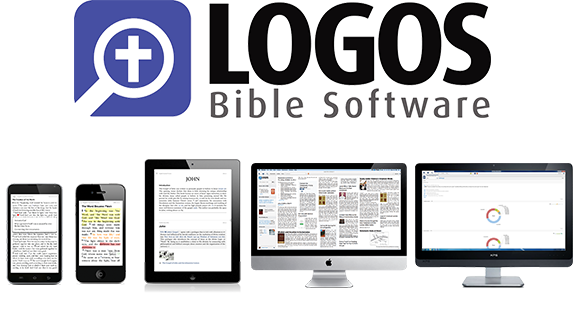My Favorite Features of Logos
Jessalyn Hutto
Yesterday I began a series of three posts in my attempt to review Logos Bible Software. In yesterday's post I gave a brief explanation of what Logos is. Today I will share with you some of my favorite features that Logos has to offer. Tomorrow, I will give you my unbiased opinion on the product.
Is Logos for the average woman? Well, that depends on how you define average. For the purposes of these reviews I am viewing the average woman as myself - a Christian woman who hasn't been to seminary, who doesn't know Greek and Hebrew, but who loves the Word of God and who desperately wants to do all she can to know her Savior more by studying it. That's the average (and yet not-so-average) woman I am referring to. And she would most definitely find this product appealing!
Let's take a minute to look at some of the features I found extremely helpful as I used it alongside my usual study of the Word.
Specialized Packages
When I was given the Bronze package to review, I also got to choose which type of Bronze package I would like. I could have chosen between Anglican, Pentecostal, Reformed, Lutheran, Baptist and more for the package that would best fit my needs. Seeing as there wasn't an option for "Reformed Baptist" I went with the Reformed version. This customized my package to include works from theologians like John Calvin and John Bunyan.
Having the ability to choose a specialized base package helps get your collection started in the right direction. It helps ensure you don't have a bunch of unwanted books or commentaries in your base library and gives you a head start on the ones you do.
Atlas
Logos has a beautiful Atlas tool that is like the maps in the back of your Bible on steroids. You can choose from a plethora of time periods and important events to see a map that specifically relates. This map is of the Patriarchal Period.
By hovering over any of the cities, a nice little information box will pop up giving you insights you might otherwise miss. For instance, ever wonder where exactly that city was that Uriah the Hittite (Bathsheba's husband) was killed in battle? It was Rabbah. I know that because of that little white box.
I don't know about you, but for me being able to visualize where things happened really helps brings the Bible to life. The maps of Paul's missionary journeys, Jesus' life, and the Israelite's wanderings are such blessings as I try to visualize the biblical narrative.
Timelines
Speaking of helping to visualize the storyline of Scripture, one of the things I struggle with - especially as I'm reading in the Old Testament - is where things fit in to the timeline of history. I have to say that one of the coolest features I've found in Logos so far is the timeline tool. By looking up a date for a biblical event you can see a huge amount of relevant events that happened all around the world during the same time period.
For instance, say you are studying the book of Esther and want to get a better picture of what the world looked like during that time. You simply type in 480 B.C. (approximately when Esther became queen) and instantly you are given a snapshot into what was going on all over the world at that time.
Did you know that Esther lived during the same time period as the Parthenon's birth in Athens? Me either, until now! Tools like maps and timelines (especially when they are as interactive and detailed as these) really bring the Bible to life.
Cross References to the Max
There really are just too many cool features to go into in one blog post. Of course the fact that you can click on practically any word in the biblical text or in the extra-biblical book you are reading and pull up all the related content you own in your Logos library is insane.
Remember yesterday when I showed how you could pull up various information on creation? Well, as I was exploring the various resources available to me I came across a whole collection of hymns that relate to creation. I clicked on one and instantly the lyrics came up and the instrumental music was playing over my speakers. This ability to pull up related hymns made me ecstatic because I find that music and poetry are such natural ways to express the wonderful truths you learn in the Bible.
As you can see, the things you can do with Logos are quite impressive, but you still may be wondering if Logos is right for you and your family. Is this a resource you should invest in? Tomorrow I will share my final thoughts on Logos Bible Software.
Do you use Logos? If so, what's your favorite feature?





